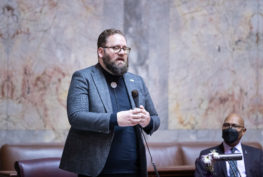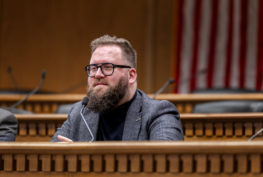With non-compete agreements used broadly throughout the workforce, Sens. Marko Liias and Joe Fain have sponsored new bipartisan legislation aimed at protecting economic innovation and the rights of workers in a variety of fields and pay brackets. The proposal will be the topic of a public hearing on Thursday in the Senate Labor & Commerce Committee.
“Non-compete clauses have become a backdoor inhibitor to the startup spirit that defines our region,” said Liias, D-Lynnwood. “We need to be putting people first, allowing their talents to flourish rather than stifling innovation. This legislation will ensure that the next generation of visionaries have a path forward, rather than barriers created to prevent nonexistent problems.”
Non-compete employment agreements are generally used to restrict an employee’s future job opportunities for a specified amount of time. Employers often cite the need to protect company trade secrets and investments in expensive worker training as the basis for requiring an agreement. Non-competition clauses also significantly limit an employee’s potential economic opportunity and innovation by halting their ability to pursue new ideas and can impose unfair and restrictive penalties on employees, according to the bill’s sponsors.
“Our economy has always been fueled by the desire of entrepreneurs to try new ideas and find a better way of doing things,” said Fain, R-Auburn. “Innovation is critical if we want to drive our economy forward. Demanding overly burdensome and restrictive penalties for an employee’s future can deal a huge blow to the opportunity to pursue the next great invention or idea.”
The legislation would require employers to disclose non-compete agreements before a job offer is accepted. It also disallows future employment restrictions if the job’s salary is less than five times the state’s average weekly wage or if the employee is laid off or let go during a probationary period. Non-compete agreements would not be allowed for part-time jobs, less than 40 hours per work or independent contracts.
According to a 2016 report by the U.S. Department of Treasury, 18 percent of all workers are covered by non-compete agreements, with at least 37 percent of workers asked after accepting a job offer. Many are in place including in some jurisdictions where agreements cannot be legally enforced.
“It’s possible to protect the unique and certain interests of companies and their ability to bring products to market, without stifling innovation and opportunity,” said Fain. “This legislation is a starting place to find the sweet spot between legitimate things that a company should have a right to protect, and the one-size fits all agreements that hurt competition in the workforce.”





